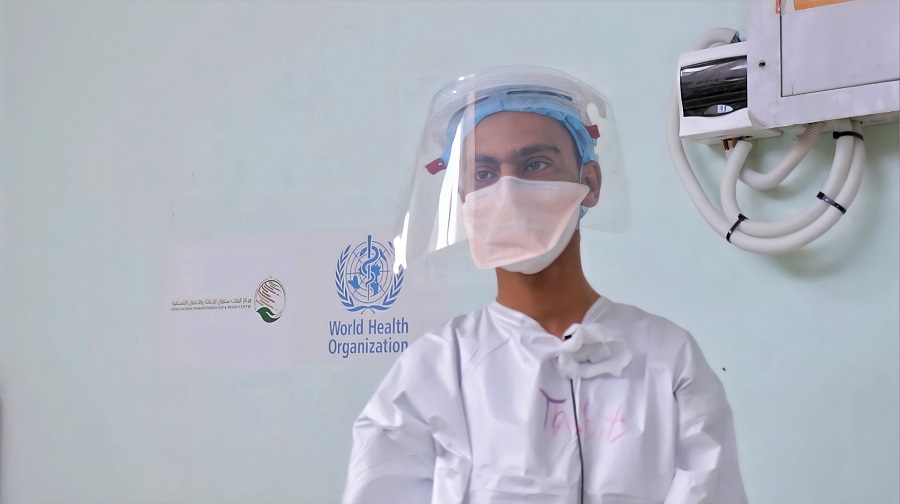 Al Sadaqa hospital, Aden. Thabit is one of the health care workers on the frontlines responding to COVID-19 since the beginning of the pandemic
Al Sadaqa hospital, Aden. Thabit is one of the health care workers on the frontlines responding to COVID-19 since the beginning of the pandemic
7 September 2021 – Thabit Ali is a health care worker at at Al Sadaqqa hospital in Aden, where he has been working for the past 4 years. When the hospital’s isolation unit became operational, Thabit was one of the first to begin working with COVID-19 patients. Much to his family’s concern, he insisted on helping patients in dire need of care.
“During the beginning of the pandemic, my family and I were concerned that my work required my close contact with people with COVID-19,” Thabit said. “But I chose to continue working, and I am glad I did. We continue to ensure infection prevention measures are in place, including PPE (personal protective equipment) and self-isolation measures.”
As of 23 August 2021, 7509 confirmed cases of COVID-19 and 1418 associated deaths have been reported in Yemen. Yet the actual numbers of cases and deaths are under-reported and could be much higher. Other spreading infectious diseases, linked to Yemen’s ongoing conflict and a destroyed health infrastructure, present further major challenges to Thabit and other frontline health workers.
“I want to help patients feel safe and alleviate their emotional and physical suffering. The state of mind of the patient is critical, as it also can affect their physical well-being,” said Thabit.
“There is a significant burden on public hospitals such as Al Sadaqqah, particularly in the aftermath of the COVID-19 pandemic. Some of those challenges could be as simple as lacking oxygen, medicines and essential medical and non-medical supplies.”
The COVID-19 Preparedness and Response Planning Project funded by the King Salman Humanitarian Aid and Relief Centre (KSrelief) has been a cornerstone of the COVID-19 pandemic response led by WHO and the Health Cluster in Yemen, in coordination with health authorities. This project has so far reached 4500 COVID-19 patients across the country with health services. In addition, capacity-building has been conducted for 170 health care workers and 28 isolation units are able to function with continued supplies of lifesaving medications, medical equipment and medical supplies to support the COVID-19 response. The project is also supporting COVID-19 testing laboratories with equipment and essential testing materials.
“I would like to extend my gratitude on behalf of the hospital, the health workers and patients to WHO and KSrelief for the continued support to the COVID-19 response,” said Thabit. “They have provided us with ventilators, medical supplies and medicines. In addition, with supplies of PPE to protect health staff.”


